If there’s anything sillier than Japanese stereotypes about westerners (particularly Americans) in Japan, it’s Japanese stereotypes applied to westerners in their native environment. With a little assistance from the great Stan Lee, things hang together pretty well. Heroman is the tale of Joey Jones, adolescent loser, who finds a discarded robot toy that he patches back together. On the eve of a terrible alien invasion, the raggedy remote-control robot transforms into a hulking heroic figure, which Joey dubs “Heroman.” If you haven’t noticed yet, the names are awful. Awful even for a Stan Lee production.
The story takes place in an anonymous Californian city, so right away there need to be overcrowded freeways, skateboards, a beach, and black people. The main character is right out of Japanese love-triangle central casting, aside from the painfully-American name: he’s rather effeminate, shy, and unpopular. His main love interest is very baseball-and-apple pie in that she’s a blue-eyed, blonde cheerleader with an independent streak by the name of Lina Davis. Naturally she wears her cheerleader uniform everywhere. The small-time nemesis is her brother, all-American muscle-bound captain of the football team. He’s always wearing shorts and his jersey, a nod to the casual atmosphere expected of western schools. His henchman is short, overweight, and spoiled by wealthy parents. All very typical. Add in Joey’s buddy Psy (that really should read “Cy” as in “Cy Young,” but hey), an ambiguously-swarthy skater type with gigantic hair, and Professor Denton, the science instructor who accidentally brought the alien apocalypse down to Earth, and the cast is pretty much complete.
Heroman promises to offer some of the best and worst of two genres: heroic shonen anime and Marvel-style American comics. I specifically mention Marvel here, because there’s a certain flavor that Stan Lee is known for that shows up pretty well here. The classic distinction between DC superheroes like Superman, Wonder Woman, and Batman and Marvel superheroes like Spider-Man, The Incredible Hulk, and Iron Man is that while DC superheroes have superheroic problems, Marvel superheroes have mundane problems as well. Sure, Superman has to juggle his secret identity, but he doesn’t wrestle with that like Iron Man does with his drinking problem, or how Spider-Man struggles with his job and love life. Joey Jones has much more Peter Parker in him than Bruce Wayne. He’s a poor kid working a part-time job at a diner. He’s only got one friend at school is looked down on by his other classmates. He lives alone with his grandmother and pines over a photo of himself with his father.
Stan Lee doesn’t keep things entirely on the down-beat, though. In typical Japanese fashion, there’s a cute and popular girl that he likes, but in typical Stan Lee fashion she already quite clearly likes him. They take the obligatory romantic awkwardness of a made-for-Japan show and recast it. Joey’s not shy around Lina because he’s afraid she doesn’t like him. He’s shy around her because her big brother is going to kick is pathetic little loser ass. Basically Lina’s brother is to Joey what Flash was to Peter Parker. There’s nothing new under the sun, but that’s not a bad thing.
As for the superheroics, we get a toy robot that turns into a hulking armored robot that’s super-strong and brave and all those things Joey doesn’t think of himself as. Rather than piloting Heroman directly, or even having a remote control rig, Joey talks to it. The toy robot has a little remote control, but when Heroman transforms, it encases Joey’s hand and forearm, displaying an LCD interface. So far as I can tell, Joey doesn’t have a lot of direct influence over his superpowered buddy; a situation develops and an icon appears on the controller. Joey shouts something like “attack!” or “burst!” or “finish!” and slaps his free hand on the icon. Presumably he’s Heroman’s safety valve, or has an implicit veto authority.
Each episode ends with charmingly cheesy “to be continued” cliffhanger. This is a good thing.
Spoilers follow.
As the series progresses (I’ve seen up through episode 12), the alien threat emerges, overwhelms the puny earthling defenses, and Heroman comes to the rescue! Yay! In a twist I didn’t really see coming, the alien threat is actually vanquished. Humanity begins to rebuild, and things get much more interesting. The government is highly interested in how events unfolded, particularly in regards to some blurry footage of Heroman in action. They don’t know what it is, who is controlling it, whether it is a threat to national security. Now we get to see how Joey and his friends deal with a threat they don’t even really know is there, and cannot engage as freely as a bunch of twelve-foot-tall cockroach-aliens.
The conversion of Lina’s brother to a cockroach-man hybrid was pretty lame, showing how the exact same themes that don’t work well in American comics don’t work very well in Japanese anime either. I’ll give partial credit for killing off half of the bully/henchman pair, but deduct points for the lack of emotional connection to the self-exiled cockroach-hybrid in subsequent episodes. Glossing over how Lina and her father are dealing with the tragedy just so they can get back to having their perky cheerleader girl just doesn’t work for me.
Speaking of Lina, I’m rather amused that the almost-obligatory “half-Japanese” character that shows up in your typical harem comedy is an outgoing blonde cheerleader type, as is the case here, but is universally large-breasted. Not so in Heroman, where there are several curvy adult women depicted but the main love interest is much more slightly-built. Perhaps the contrast is intended to make her seem more approachable?
I was disheartened when Joey’s big sister shows up with a guitar and threatens to ruin the show. I don’t mean by being a thorn in the protagonist’s side, but by committing the cardinal sin of all Japanese action cartoons: pop music. Be warned that near the end of episode eleven there is cheesy rock music. I can only hope that things don’t slide further in that direction.
Musical warning aside, Heroman is quite watchable. Check it out if you get the chance. Hat tip to Snark, whose review tipped me from cautious avoidance to actually giving Heroman a chance.
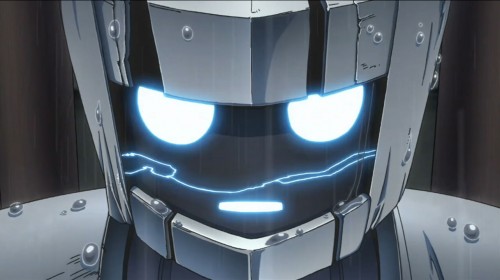
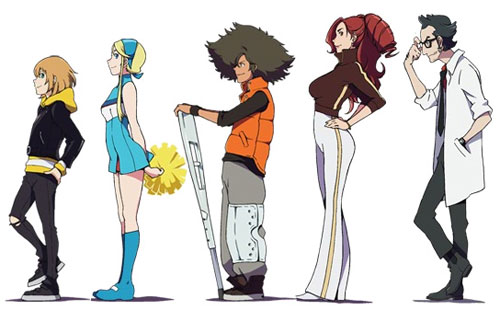
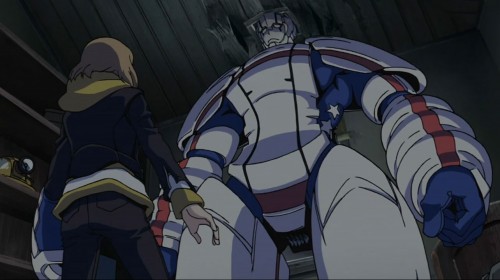
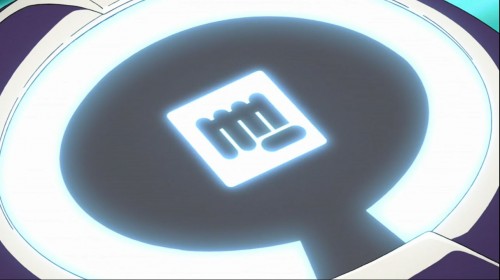
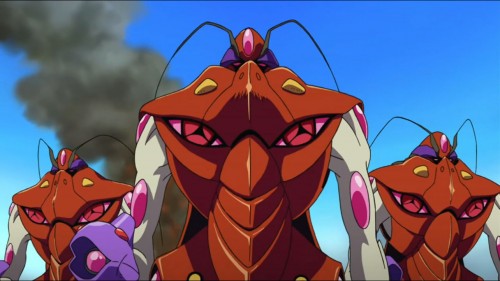
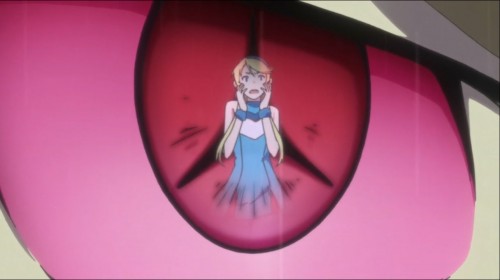
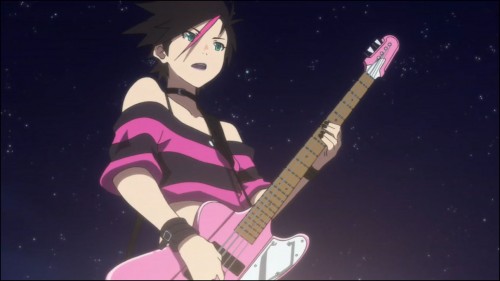
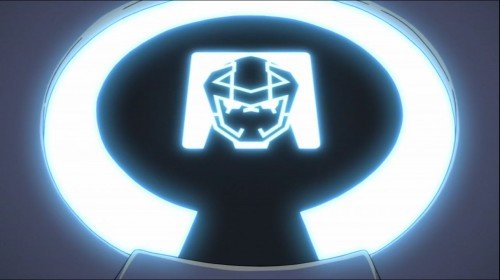
Dude, I don’t know what your problem is with this anime to give it such trashy and clearly biased criticism, but compared to all other anime today (of which 90% are pure garbage) Heroman is a diamond in the rough. It managed to capture and hold my attention which is very rare since I hate anime and only watch them when I’m extremely bored, and even then I approach them with pessimism.
To anyone reading this comment I say:
“Give Heroman a chance. Its nowhere near as bad as this summary makes it out to be.”
Trashy and biased? What was inaccurate or overblown or tilted in this review? Heroman was, as I put it, quite watchable. That puts it head and shoulders above 90% or more of recent anime. If you cannot agree that Holly’s musical scene was an abomination, I doubt we’d ever be able to see eye to eye on matters of taste.
“Heroman is quite watchable.”
The penultimate sentence in a +1000 word review. Like anyone is going to even bother reading that far after seeing what you previously wrote. If you plan to give a passing (or better) grade to something then you need to alternate the paragraphs. Pro, con, pro, con ect… and a conclusion. NOT con, con, con, con and a conclusion where you (suddenly out of the blue) mention that there is a pro to the show and should be checked out. Once you start the pattern (with absolutely no deviation along the way) then people will figure “why bother reading all the way when this guy is just repeating the same point”.
I’ll try to take your reply as constructive criticism regarding the general structure of the review.
That said, second sentence of the article: “With a little assistance from the great Stan Lee, things hang together pretty well.” The article goes on to describe how the cast of characters fits Japanese anime tropes handily, then how it fits into Stan Lee-era Marvel comics standards. If you are particularly fond of or averse to such things, this is useful information in determining whether to pick up the title or let it slide. It goes on to talk a bit about how some of the Marvel tropes undermine the Japanese ones, particularly that Joey has a very American reason for being shy with Lina instead of just being a typical socially-retarded Japanese protagonist. And so on.
This is similar to my review of Code Geass, which I also recommend as good viewing despite many characteristics that, taken separately, would have completely ruined its entertainment value.
I think you read what you wanted to read: somebody being overly critical of a reasonably-good show. I don’t think that’s what is actually written here, but I see how it would be easy to take it that way. This article is almost strictly in a “here’s something bad, but here’s how they made it good!” format.
He pines over a picture of his MUM and his dad, he just looks a LOT like his mum